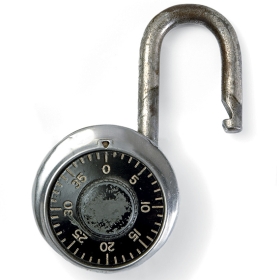At our 1973 commencement, 426 seniors listened as Shirley Chisholm wove her hard-fought “firsts” into a message for us about activism, laced with bold truths. That day, her powerful words propelled me into our generation’s revolutionary times. How would I live up to her charge?

At our 1973 commencement, 426 seniors listened as Shirley Chisholm wove her hard-fought “firsts” into a message for us about activism, laced with bold truths. That day, her powerful words propelled me into our generation’s revolutionary times. How would I live up to her charge? Four years later, I’d find out.
In 1964, Chisholm had been the first Black woman to serve in the New York State Assembly, and four years later repeated that “first” in winning a seat in the House of Representatives. As our senior year began, Chisholm was just ending her run for president as the first Black woman to seek the nomination of a major political party. Now this woman with the campaign slogan “Unbought and Unbossed” stood before us at a time when protests and court challenges were upending many of our nation’s discriminatory laws and practices.
As a founding member of Congress’s Black Caucus and Women’s Caucus, Chisholm championed the Civil Rights and women’s movements. Now she was urging us to enlist as foot soldiers. “The myths which suggest that women are too fragile, too emotional to be advanced in our society have been exploded,” she declared. “Senseless stereotypes, dismissing members on the basis of sex and color to participate fully in the American system have been broken, one by one, especially during the past decade.” After telling us what she’d done to fight for racial and gender equality, she said to all but our class members of color that “if I can do it as a Black woman, you can do even more as educated white women.”
I left campus that day fired up to act. That didn’t happen. Instead, I got caught up in trying to find a job in sports media, my only credential being that I knew lots about sports “for a girl,” as one sportscaster put it. When miraculously I landed an entry job at Sports Illustrated, my waking hours got gobbled up: fact-checking by day, ballgames at night, and weekends spent writing stories I hoped SI would publish. My heart was with the activists; my body did not follow.
My new book, Locker Room Talk: A Woman’s Struggle to Get Inside, describes my journey from being the rare female baseball reporter to a woman mocked and maligned in the media but still the victor in court. This happened when I had the audacity to challenge baseball’s unfair media policy separating me from the men who were in locker rooms talking with ballplayers. At the 1977 World Series, despite both teams granting me entry, baseball commissioner Bowie Kuhn denied it, apparently believing that his separate would be equal.
After the series, Kuhn held firm as he and his lawyers negotiated with the baseball editor and lawyer at Sports Illustrated. By November, SI was exploring a court case. On Dec. 29, 1978, Time Inc., our corporate owner, filed its complaint of gender discrimination in the Southern District Court in Manhattan. The court’s clerk spun a wooden container and pulled out a card with a judge’s name on it. By random selection, Ludtke v. Kuhn was assigned to Constance Baker Motley, who was this court’s only female judge in its 189-year history.
In 1966, Motley had become the first Black woman to be appointed judge on the U.S. federal bench after her groundbreaking career as plaintiff’s attorney in major racial discrimination cases during the Civil Rights movement. Legal precedents that Motley set in Fourteenth Amendment cases at the U.S. Supreme Court played a significant role in my lawyer F.A.O. Schwarz Jr.’s presentation to her as judge.
On Sept. 27, 1978, Walter Cronkite on the CBS Evening News led his story about my court victory by saying the Yankees had “opened up a unisex locker room.” Maybe Chisholm was watching in Florida, where she’d gone to “live a very quiet life,” as she had told the New York Times.
Had I finally become her worthy foot soldier? Perhaps. With Locker Room Talk, I get another chance to inspire a younger generation, many of whom don’t know about her fights or mine.
“I’d like them to say that Shirley Chisholm had guts,” she once said. I hope the same can be said of me.
Melissa Ludtke ’73 is an author, journalist, rower, and mom of another Wellesley graduate, class of 2019.

